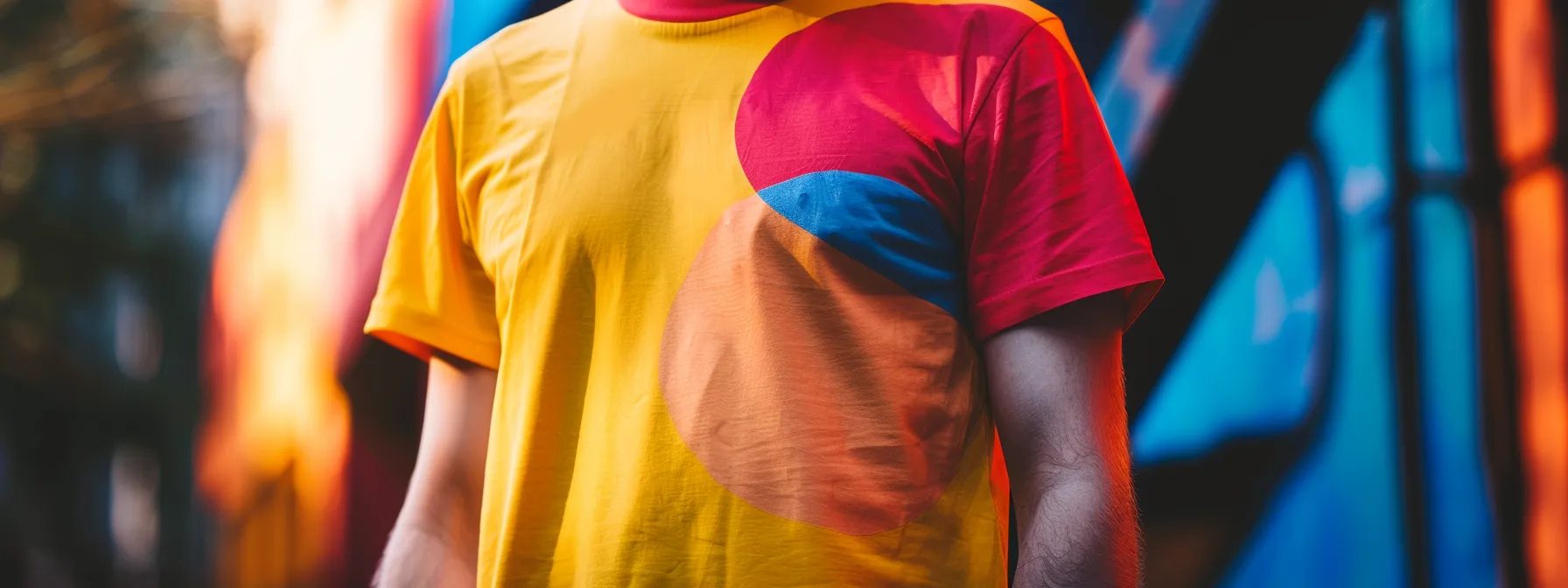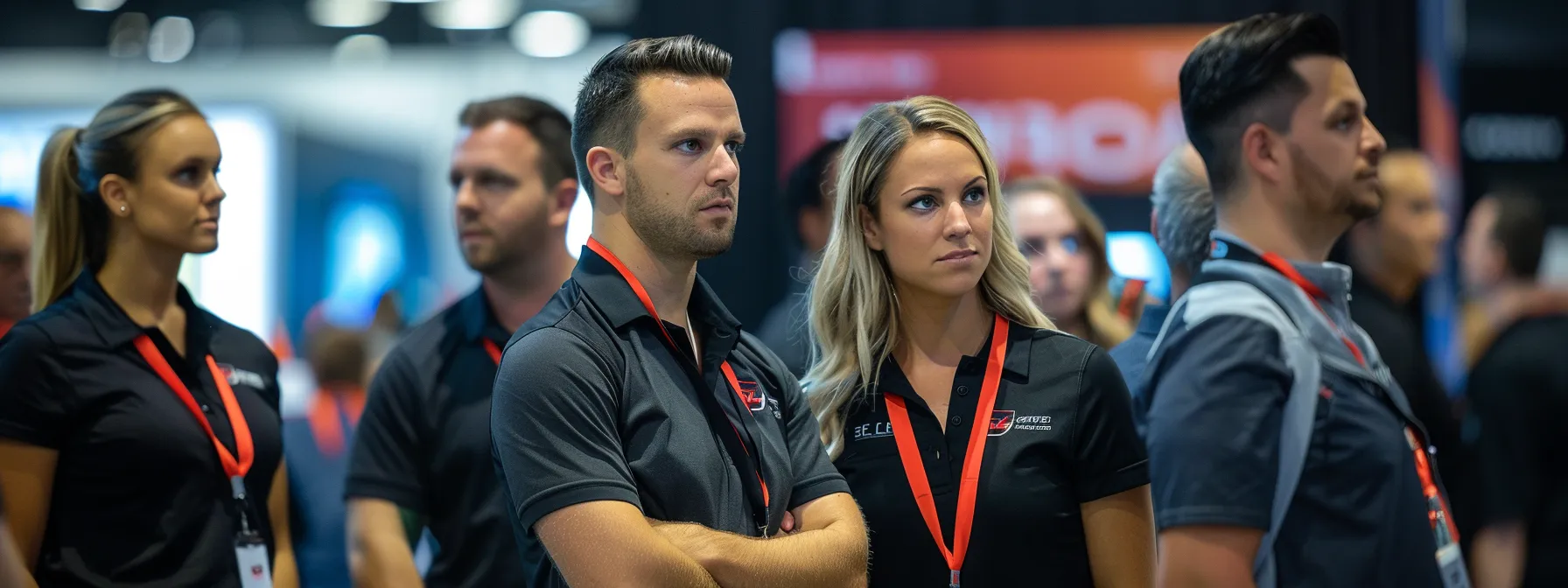Custom apparel is more than just clothing; it is a powerful tool for branding. With the right shirt, organizations can effectively connect with their target audience, enhance team building efforts, and create lasting impressions. This article will explore the importance of custom apparel in branding, how to select the right products that reflect your brand identity, and the latest trends shaping the industry. By addressing common challenges faced by businesses in establishing brand recognition, this content will provide practical insights to elevate your branding strategy with American apparel solutions.
Key Takeaways
- Custom apparel enhances brand visibility and fosters employee pride within organizations
- A cohesive image builds trust and strengthens customer relationships over time
- Sustainable practices in custom apparel attract socially conscious consumers and improve brand loyalty
- Technology facilitates personalization, allowing brands to connect more deeply with their audience
- Consistent branding across custom apparel reinforces recognition and drives customer engagement
Understanding the Importance of Custom Apparel in Branding

Custom apparel serves as a vital tool in a company’s marketing strategy, enhancing brand visibility through promotional merchandise. It plays a crucial role in building brand identity while allowing for personalization and unique embroidery options that resonate with consumers. This section will outline the significance of custom apparel in branding, its impact on consumer perception, and how it contributes to establishing a strong market presence.
Defining Custom Apparel and Its Branding Significance
Custom apparel represents a strategic opportunity for organizations to communicate their brand identity effectively. By using branded workwear, companies can create a cohesive look that enhances employee pride and customer recognition. This approach not only fosters a sense of belonging among employees but also builds a clear perception of the brand in the eyes of consumers, ultimately leading to a stronger market presence.
The significance of custom apparel extends beyond mere aesthetics; it directly impacts customer service and engagement. When clients encounter employees dressed in personalized apparel, they are more likely to perceive the organization as professional and trustworthy. This perception plays a critical role in establishing long-lasting relationships with customers, highlighting the importance of integrating custom apparel into a broader branding strategy:
Examining How Custom Apparel Builds Brand Identity
Custom apparel plays a crucial role in shaping a company’s brand identity by fostering a culture of pride among employees. When businesses opt for customized clothing options, such as those created through screen printing, they create a sense of belonging that resonates with both staff and customers. This connection not only boosts employee morale but also promotes a strong visual representation of the brand, making it easily recognizable and relatable to the target audience.
Moreover, custom apparel enhances customer engagement by embodying the values and personality of the brand. When employees wear branded attire, it signals professionalism and commitment to the brand’s mission, which instills trust in consumers. This trust is integral in encouraging customer loyalty, allowing businesses to effectively promote their brand while creating an inviting atmosphere for potential clients. Through thoughtful design and messaging, custom apparel becomes a powerful tool in building lasting relationships with customers.
Recognizing Consumer Perception of Custom-Branded Apparel
Consumer perception of custom-branded apparel significantly influences brand credibility and employee morale. When customers see employees in branded attire, it acts as a physical “billboard” for the company, showcasing its values and fostering instant recognition. This visual connection enhances trust in the brand, as customers correlate professional appearance with reliability, which ultimately contributes to developing lasting relationships.
A well-designed custom apparel strategy not only enhances brand visibility but also actively engages customers by creating a consistent image across various touchpoints. For instance, organizations that leverage custom apparel effectively often report higher employee morale, as staff members take pride in representing a brand they believe in. As a result, companies can elevate their branding efforts and drive overall customer loyalty through a thoughtful approach to branded garments:
- Establish credibility through professional presentation.
- Enhance employee morale and pride in the brand.
- Create lasting customer connections with visual branding.
- Use custom apparel as a marketing tool for visibility.
Boosting Brand Recognition Through Custom Apparel

Selecting apparel that aligns with a company’s brand identity is essential for fostering recognition in the market. Implementing consistent logos and graphics enhances visibility, particularly at trade shows, where the impact can drive significant return on investment. Maximizing the distribution of custom apparel ensures that businesses effectively reach their target market, reinforcing brand presence and engagement.
Selecting Apparel That Reflects Your Brand
Selecting apparel that accurately represents a company’s corporate identity is essential for establishing brand recognition. By choosing garments that align with brand values and aesthetics, businesses create a cohesive visual message that resonates with customers. Moreover, utilizing environmentally friendly materials in custom apparel can not only reflect a company’s commitment to sustainability but also attract socially conscious consumers who value corporate responsibility.
When employees wear apparel that embodies the brand, they become brand ambassadors, actively promoting the business in a positive light. This connection encourages customer loyalty, as consumers tend to trust brands that present a consistent image. To maximize the impact of custom apparel, companies can focus on designs that capture attention while conveying their mission and vision:
- Ensure apparel reflects corporate identity.
- Incorporate environmentally friendly materials.
- Utilize apparel to cultivate brand ambassadors.
- Enhance customer loyalty through consistent branding.
- Design to capture attention and convey mission.
Implementing Logo and Design Consistency
Implementing logo and design consistency across custom apparel is crucial for enhancing brand awareness. When businesses choose items like polo shirts and other branded swag featuring their logos in a uniform style, they create a recognizable identity that consumers associate with quality. This consistency not only helps in reinforcing brand recognition but also encourages brand loyalty, as customers tend to gravitate towards businesses that present a cohesive image across all their marketing channels, including social media.
Furthermore, the strategic use of custom apparel in marketing can drive engagement and visibility in various settings. For instance, employees wearing consistent designs during promotional events or trade shows act as walking advertisements, enhancing the company’s presence in the community. As consumers encounter the same design across different platforms, from physical merchandise to social media campaigns, they are more likely to remember and trust the brand, cultivating a deeper connection that ultimately benefits long-term customer retention.
Maximizing Visibility With Custom Apparel Distribution
Maximizing visibility with custom apparel distribution is essential for businesses aiming to reinforce brand recognition. By integrating high-quality items, such as cotton jackets, into their marketing strategies, organizations can capture attention while promoting a cohesive brand presence. These items not only serve practical purposes but also enhance employee morale as staff proudly represent the brand in their everyday attire, further extending exposure to potential customers and clients.
Additionally, utilizing custom apparel for fundraising initiatives can become a viable revenue stream for companies. By selling branded merchandise, businesses not only support their promotional efforts but also engage their community in meaningful ways, encouraging participation and fostering brand loyalty. The synergy between impactful apparel distribution and thoughtful marketing initiatives can significantly amplify a company’s visibility and overall market presence:
- Utilize quality cotton jackets for branding.
- Enhance employee morale through branded attire.
- Leverage fundraising for additional revenue streams.
- Increase community engagement with custom apparel.
Choosing the Right Custom Apparel for Your Brand Identity

Choosing the right custom apparel is essential for effectively representing a brand’s identity. This process involves identifying apparel types that align with the brand’s values, considering material and quality for optimal representation, and incorporating brand colors and themes to strengthen brand recognition. By focusing on sustainability, teamwork, and merchandising strategies, organizations can ensure their custom apparel reflects their unique slogan and resonates with their target audience.
Identifying Apparel Types Suited to Your Brand
Identifying the right apparel types suited to a brand is essential for reinforcing its ethos and reputation. Companies can choose clothing items that reflect their unique fashion design, such as polos, t-shirts, or jackets, which align with their overall brand image. Selecting gear made from high-quality materials can also showcase a commitment to durability and style, allowing businesses to make a lasting impression on customers.
Moreover, companies need to infuse creativity into their custom apparel choices to distinguish themselves in the market. For instance, incorporating innovative designs and colors that resonate with the target audience can enhance brand visibility and engagement. When brands offer apparel that embodies their values and personality, they cultivate a deeper connection with both their employees and customers, ultimately strengthening loyalty and advocacy for the brand.
Considering Material and Quality for Brand Representation
When considering material and quality for custom apparel, businesses must focus on fabrics that not only enhance the brand’s image but also foster collaboration among employees. High-quality materials, such as cotton and moisture-wicking blends, can reflect professionalism and commitment. This attention to detail instills confidence, as employees take pride in wearing apparel that represents their brand effectively in various settings.
Additionally, the choice of apparel greatly influences customer perception. Well-crafted garments demonstrate a brand’s dedication to quality, reinforcing a positive image. Organizations should prioritize sourcing durable materials that align with their brand values, as this approach strengthens relationships with both employees and clients, ultimately shaping the future of branding through impactful apparel choices.
Incorporating Brand Colors and Themes in Apparel Design
Incorporating brand colors and themes into custom apparel design is a fundamental element of effective branding. By utilizing a company’s unique color palette, businesses can create a cohesive visual representation that resonates with customers and strengthens brand recognition. For example, a company known for its eco-friendly initiatives might opt for organic cotton t-shirts in earthy tones, reflecting its commitment to sustainability while appealing to environmentally-conscious consumers.
Additionally, consistent use of brand themes in the design process ensures that the apparel aligns with the company’s overall mission and values. This not only enhances brand identity but also fosters a connection with customers, as they are more likely to engage with brands that reflect their own beliefs. When a financial services firm integrates its corporate colors and themes into professional attire for its staff, it enhances the firm’s image and builds trust with clients, demonstrating an unwavering commitment to its brand values.
Integrating Custom Apparel Into Your Marketing Strategy

Aligning custom apparel with marketing goals is essential for maximizing brand recognition and impact. Utilizing custom apparel in promotional campaigns helps create memorable brand experiences that resonate with the audience. Additionally, measuring the impact of custom apparel on brand awareness provides valuable insights for refining marketing strategies. This section will explore these key topics to demonstrate how custom apparel can effectively elevate branding efforts.
Aligning Custom Apparel With Marketing Goals
Aligning custom apparel with marketing goals is a strategic approach that businesses can utilize to reinforce their branding efforts. Custom apparel serves as an extension of a company’s identity, making it vital for organizations to ensure their promotional clothing resonates with their overall marketing message. For instance, by incorporating elements such as logos, slogans, and specific brand colors into their apparel designs, companies can create garments that not only enhance visibility but also foster a sense of unity among employees and customers alike.
In practice, businesses can use custom apparel in promotional campaigns to create memorable experiences that engage their audience effectively. For example, distributing branded t-shirts at events or trade shows creates a physical representation of the brand that attendees can relate to long after the event concludes. This tactic not only boosts brand recognition but also encourages customer loyalty, as participants often appreciate the tangible connection with the brand, ultimately driving sales and strengthening overall marketing strategies.
Using Custom Apparel in Promotional Campaigns
Using custom apparel in promotional campaigns allows businesses to create memorable brand experiences that resonate with their audiences. When organizations distribute branded clothing at events or trade shows, they not only enhance brand visibility but also provide attendees with tangible items that represent the company’s identity. This strategy reinforces customer engagement and encourages brand loyalty, as recipients take home a piece of the brand, serving as a constant reminder of the company’s values and mission.
Furthermore, integrating custom apparel into marketing efforts can amplify a company’s reach and impact. Companies can design promotional campaigns around specific occasions, such as product launches or local community events, by incorporating their logos and branding into the apparel. This tailored approach showcases the brand’s commitment to its audience while fostering a sense of community among consumers. The effectiveness of such strategies can be measured through increased brand recognition and loyalty, demonstrating their value in shaping the future of branding:
Measuring the Impact of Custom Apparel on Brand Awareness
Measuring the impact of custom apparel on brand awareness requires assessing several key metrics, including customer engagement and visibility. Businesses can monitor the effectiveness of their branded clothing by tracking social media mentions and customer responses during events. Higher engagement rates often indicate a strong connection between the apparel and the brand, reflecting the apparel’s role in enhancing recognition and loyalty.
Furthermore, companies can utilize surveys and feedback forms to gather insights from customers about their perceptions of the brand following interactions with employees wearing custom apparel. Examining the correlation between branded attire and consumer trust levels can provide actionable data, allowing brands to adjust their marketing strategies accordingly. This direct feedback loop enables organizations to fine-tune their custom apparel initiatives, ensuring they align with their branding objectives while effectively boosting awareness in their target market.
Case Studies: Brands Boosting Image With Custom Apparel

This section reviews successful custom apparel campaigns that have effectively boosted brand image, highlighting specific strategies utilized by leading companies. It also discusses valuable lessons learned from these brand apparel tactics and showcases best practices that organizations can apply to their own branding efforts. Each insight reinforces the critical role custom apparel plays in shaping a recognizable and trusted brand identity.
Reviewing Successful Custom Apparel Campaigns
Various brands have effectively used custom apparel to enhance their public image and strengthen their branding. For instance, a popular athletic wear company partnered with community organizations to distribute branded workout gear at local events. This initiative not only promoted a healthy lifestyle but also created a sense of community, allowing the brand to establish deeper connections with its target audience.
Another notable example can be found in the tech industry, where a leading software company utilized custom shirts featuring their logo during major trade shows. By ensuring their team looked cohesive and professional, they successfully drew attention to their booth and left a memorable impression on potential clients. Such experiences illustrate how strategic custom apparel initiatives can boost visibility and foster loyalty among customers:
Learning Lessons From Brand Apparel Strategies
Learning from successful custom apparel strategies involves understanding how brands prioritize cohesive and engaging designs to enhance recognition. For instance, an athletic wear company showcased its commitment to community values by distributing branded workout gear at local events. This approach not only reinforced their brand identity but also fostered a positive relationship with potential customers, demonstrating the importance of aligning promotional efforts with core values.
Another effective strategy observed in the tech sector reveals that consistency in branding during major trade shows can significantly impact visibility and engagement. A software company utilized custom shirts featuring its logo, which helped create a unified look for their team. This professionalism captured the attention of attendees, indicating that thoughtful application of custom apparel can leave a lasting impression, ultimately driving customer loyalty and enhancing brand credibility.
Applying Best Practices From Industry Leaders
Applying best practices from industry leaders highlights the importance of strategic consistency in custom apparel branding. For instance, a renowned beverage brand successfully utilized its iconic logo and colors across various merchandise to create a unified image that consumers instantly recognize. By ensuring that their custom apparel resonates with their brand values, they established a deep connection with their audience while reinforcing brand loyalty.
Furthermore, leaders in the fashion industry demonstrate the effectiveness of engaging storytelling through custom apparel. A well-known apparel company effectively captivated consumers by incorporating meaningful themes into their clothing lines, which resonate with social causes. This approach not only differentiates their offerings but also creates a loyal customer base that values both the brand and its mission, exemplifying how custom apparel can shape future branding efforts.
Emerging Trends in Custom Apparel and Brand Strategies

This section explores three emerging trends in custom apparel that are shaping the future of branding. First, it investigates sustainability in custom apparel, highlighting the shift toward eco-friendly materials and practices. Next, it examines how technology is being utilized in design, enhancing creativity and efficiency. Finally, it addresses the adaptation to personalization trends, focusing on bespoke options that connect brands with consumers on a deeper level.
Investigating Sustainability in Custom Apparel
Sustainability has become a significant trend in the custom apparel industry, as businesses increasingly recognize the importance of eco-friendly practices in their branding strategies. Organizations are now opting for sustainable materials, such as organic cotton and recycled polyester, to reduce their environmental impact while appealing to socially conscious consumers. This shift not only showcases a commitment to corporate responsibility but also enhances brand loyalty, as customers tend to favor brands that prioritize sustainability in their operations.
Moreover, incorporating sustainable practices into custom apparel production can improve a brand’s market position. For instance, companies that invest in ethical manufacturing processes and emphasize recyclability in their clothing lines can better differentiate themselves from competitors. By engaging in these initiatives, businesses can forge stronger connections with their customers while fostering a responsible brand identity that resonates with modern consumers. Companies looking to stay ahead should focus on integrating sustainability into their custom apparel strategies to meet emerging consumer expectations:
- Adopt eco-friendly materials for custom apparel.
- Implement ethical manufacturing practices.
- Emphasize recyclability and sustainability in branding.
Utilizing Technology in Custom Apparel Design
Utilizing technology in custom apparel design is revolutionizing the way brands create and distribute their merchandise. Advanced techniques, such as 3D design software and automated printing technologies, allow businesses to develop unique and intricate designs quickly. As companies adopt these innovative solutions, they can produce high-quality apparel that aligns with their branding strategies while reducing lead times and production costs.
Moreover, technology facilitates a personalized approach to custom apparel by enabling online design tools that empower customers to create their own apparel. Brands can leverage this capability to enhance customer engagement, as consumers enjoy the process of making tailored choices that reflect their individual preferences. By integrating these technologies, companies can drive deeper connections with their audience while improving brand loyalty and recognition through customized offerings:
Adapting to Personalization Trends in Custom Apparel
Adapting to personalization trends in custom apparel enables brands to create a more meaningful connection with their target audience. By offering customers the opportunity to customize their garments, companies can cater to individual tastes and preferences, enhancing customer satisfaction and loyalty. This approach demonstrates an understanding of consumer needs, illustrating that the brand values the unique identity of each customer.
For example, businesses can provide online platforms where customers can design their own apparel by choosing colors, styles, and adding personal messages. This level of engagement not only empowers consumers but also fosters a sense of ownership in the brand. By incorporating personalization into their offerings, companies can differentiate themselves in the competitive market, effectively driving brand recognition and ensuring a lasting impression on consumers.
Conclusion
Custom apparel is a powerful vehicle for enhancing brand visibility and fostering consumer connections in today’s competitive marketplace. By aligning custom clothing with brand values and marketing goals, businesses can create memorable experiences that resonate deeply with their audience. Prioritizing quality, design consistency, and sustainable practices not only reinforces brand identity but also builds trust and loyalty among consumers. Embracing custom apparel as a strategic branding tool will shape the future of how companies engage with their customers and stand out in the market.



